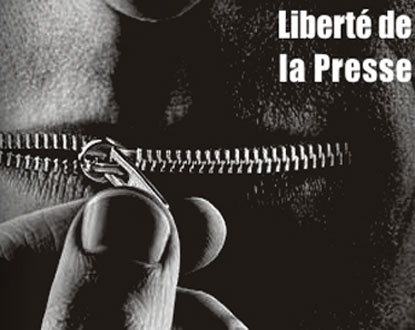The 2014 edition of the “World Press Freedom Index” reveals the negative impact of conflicts on information freedom and its participants. The ranking of several countries is also affected by an overly broad and abusive interpretation of national security protection, at the expense of the right to inform and be informed. This trend poses a growing global threat, dangerous to the freedom of information even within the “rule of law” nations.
This year’s index includes 180 countries compared to 179 in the previous edition. Finland maintains its position as the best performer, holding the top spot for the fourth consecutive year. It is closely followed, as in the last edition, by the Netherlands and Norway.
At the opposite extreme, at the bottom of the ranking, the “infernal trio” once again includes Turkmenistan, North Korea, and Eritrea, where press freedom is simply non-existent.
France, for its part, stands in 39th position.
The 2014 ranking logically underscores the negative correlation between a conflict—open or undeclared—and information freedom. In a context of instability, media outlets become strategic targets and objectives for groups or individuals attempting to control information, in violation of the guarantees provided by international texts, particularly Article 19 of the International Covenant on Civil and Political Rights, the Geneva Conventions of 1949, and their Additional Protocols I and II of 1977.
On November 26, 2013, the United Nations General Assembly adopted by consensus its first resolution on the safety of journalists and the creation of the International Day to End Impunity for Crimes against Journalists, to be celebrated on November 2. This resolution is undoubtedly an additional step in the right direction. It complements Resolution 1738 condemning attacks against journalists in armed conflict situations, initiated by Reporters Without Borders and adopted by the United Nations Security Council in December 2006, as well as the United Nations Plan of Action on the Safety of Journalists and the Issue of Impunity, adopted in April 2012.
Countries that claim to adhere to the rule of law do not set an example; far from it. Information freedom too often yields to an overly broad concept and abusive use of national security, marking a worrying retreat in democratic practices. Investigative journalism sometimes suffers significantly, with marked setbacks in a context of increased source tracing and persecution of whistleblowers.
The annual press freedom index, introduced with the 2013 Ranking, confirms a deterioration on a global scale of the right to inform and be informed. The index rose from 3,395 to 3,456 (+61), an increase of 1.8%, indicating a slight overall decline in information freedom between the 2013 and 2014 editions of the World Ranking.
Although 2013 was less deadly for journalists than the previous year, which was marked by a massacre for the profession, the number of assaults and threats increased. The rise in the index is explained by changes not only in abuses but also in the range of indicators used to compile the ranking:
– Pluralism, meaning the representation of opinions in the media;
– The independence of these same media from various political, economic, religious, and military powers;
– The quality of the legal framework governing information activities;
– The transparency of institutions that regulate these activities;
– The performance of the infrastructures that support them;
– The general climate in which the freedom to inform is exercised.


